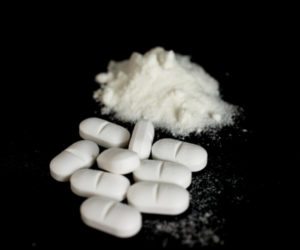Amphetamine Abuse and Addiction

Amphetamine abuse and addiction can wreak havoc on the user and their family – learn how rehab can help.
Anyone who has an amphetamine abuse or addiction problem may have a difficult time stopping the cycle of abuse. Amphetamines are powerful stimulants that give the user increased energy and focus. The drug also decreases the need to sleep or eat and many people will binge out on the drug until they collapse from exhaustion. People who want to lose weight or enhance athletic performance may be tempted to use amphetamines and run the risk of getting addicted to them. Many people like to binge on amphetamines and this may eventually make a person become malnourished and anemic, which can cause a host of health problems.
Amphetamines are central nervous system stimulants that are often prescribed to treat health problems such as asthma, narcolepsy and hyperactivity like Attention Deficit Hyperactivity Disorder (ADHD). Two popular prescription amphetamine medications are Adderall and Ritalin which are used to treat ADHD and narcolepsy. Many times these drugs are abused, especially by college students who want to stay awake and alert to study before exams or party with their friends over the weekend. The drug is highly addictive and the user will experience strong cravings for the drug if they try to stop taking it. What most of these young people do not realize is that taking amphetamines for an extended period of time may cause permanent health problems. Amphetamine addiction long-term effects may include:
- Convulsions
- Elevated body temperature
- Malnutrition
- Elevated blood pressure
- Anxiety
- Psychosis
- Heart problems or heart failure
- Cognitive and memory impairment
- Depression
- Social problems
- Change in behavior
- Euphoria
- Mood swings
- Hypertension
- Seizures
- Loss of physical coordination
- Emaciation
- Respiratory depression
- Coma
- Death
Amphetamine abuse and addiction may cause hostility and aggressive behavior in the addict. They may also exhibit a reduction in their social inhibitions and engage in risky behavior. Sexual behavior may be altered which can increase the risk of contracting sexually transmitted diseases. Amphetamine abuse and addiction may also create an unrealistic sense of personal power and abilities in the addict. Those who continually binge out on the drug often become seriously malnourished and are prone to suffer many mental problems. These mental conditions will be exposed once the addict discontinues taking the amphetamines. Amphetamine addiction long-term effects will be both physical and psychological.
Amphetamine addiction treatment should include a medically supervised detox process because the withdrawal symptoms may be extreme. Mental withdrawal symptoms may be serious and dangerous and may include:
- Aggression
- Delusions
- Hallucinations
- Violent behavior
- Psychosis
- Paranoia
- Anxiety
- Extreme depression
- Strange dreams
Some of the physical amphetamine withdrawal symptoms may include:
- Intense cravings for the drug
- Extreme fatigue
- Extreme hunger
Withdrawal symptoms may persist for about five days or up to three weeks and relapse usually occurs by about four weeks after the cessation of the drug. That is why it is so important for the amphetamine addict to enter a drug rehab program and complete it. The drug rehab programs will teach, treat and equip the addict so that he may be able to withstand cravings, triggers and temptations.
Amphetamine addiction treatment should include an in-patient or out-patient drug rehab program that offers a medically supervised detox process. Other programs offered by the drug rehab center may include individual and group counseling, medical treatment, behavioral therapy, relapse prevention, co-occurring mental disorders treatment, cognitive behavioral therapy, family counseling, peer support groups and aftercare. The addict should attend at least the minimum ninety-day program to avoid relapse. Follow-up care may include counseling, peer support group meetings, job placement or education assistance and safe housing.
With the right support system the recovering amphetamine addict has a good chance of creating a sober, happy and productive lifestyle.
If you or a loved one needs help with abuse and/or treatment, please call the WhiteSands Treatment at (877) 855-3470. Our addiction specialists can assess your recovery needs and help you get the addiction treatment that provides the best chance for your long-term recovery.
